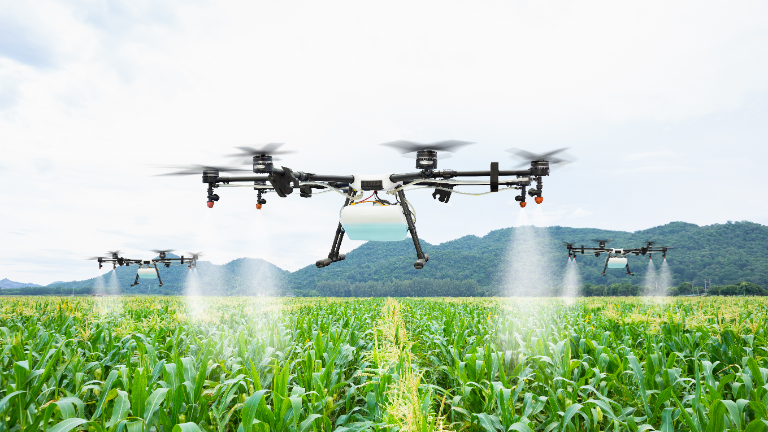The use of drones in agricultural production is becoming increasingly common in Turkey. Stating that drones are an important technological development in the agricultural sector, Asst. Prof. Dr. Hacer Handan Demir, "The most important advantage of drones is undoubtedly irrigation management. Drones can help optimize irrigation processes by measuring soil moisture and plant water requirements. This enables more efficient use of water resources, which is today's most important issue, and reduces irrigation costs."
Drones, that is, Unmanned Aerial Vehicles (UAVs), which have started to be used in many areas, are becoming increasingly common in agricultural production. Stating that drones are an important way to make the agricultural sector more efficient, as well as to protect natural resources and promote sustainable agricultural practices, Istanbul Gelisim University (IGU) Faculty of Economics, Administrative and Social Sciences, Department of Logistics Management Lect. Hacer Handan Demir:"The use of drones in agricultural production is of great importance for farmers to improve their decision-making processes with the data they provide. However, the use of drones must comply with local legal regulations and safety rules. Most importantly, trained personnel are needed to use this technology effectively and efficiently.”
“It contributes to both time saving and sustainability”
The use of drones in agricultural production has become an increasingly adopted technology to increase the efficiency of modern agriculture, optimize resources and business processes, and make agricultural operations more effective. Stating that drone technology contributes to both time saving and sustainability in areas such as irrigation and agricultural spraying in the monitoring and management of agricultural areas, Asst. Prof. Dr. Hacer Handan Demir, "Drones can monitor plant health by scanning agricultural areas with high-resolution cameras and sensors. With the data collected, determinations about the growth status of plants, diseases, harmful organisms or irrigation requirements can be made much faster. Soil fertility, plant density and irrigation requirements are analyzed by creating maps of agricultural areas and obtaining information about important issues such as the slope of the land, water flow paths and soil types on these maps. The most important advantage of drones is undoubtedly irrigation management. Drones can help optimize irrigation processes by measuring soil moisture and plant water requirements. This enables more efficient use of water resources, which is today's most important issue, and reduces irrigation costs."
 Created Date: : Friday, December 1, 2023
Created Date: : Friday, December 1, 2023
Istanbul Gelisim University (IGU) Faculty of Fine Arts (FFA) Radio, Televis...
International conferences will be held on May 7-8, 2026, in Bali Denpasar, ...







